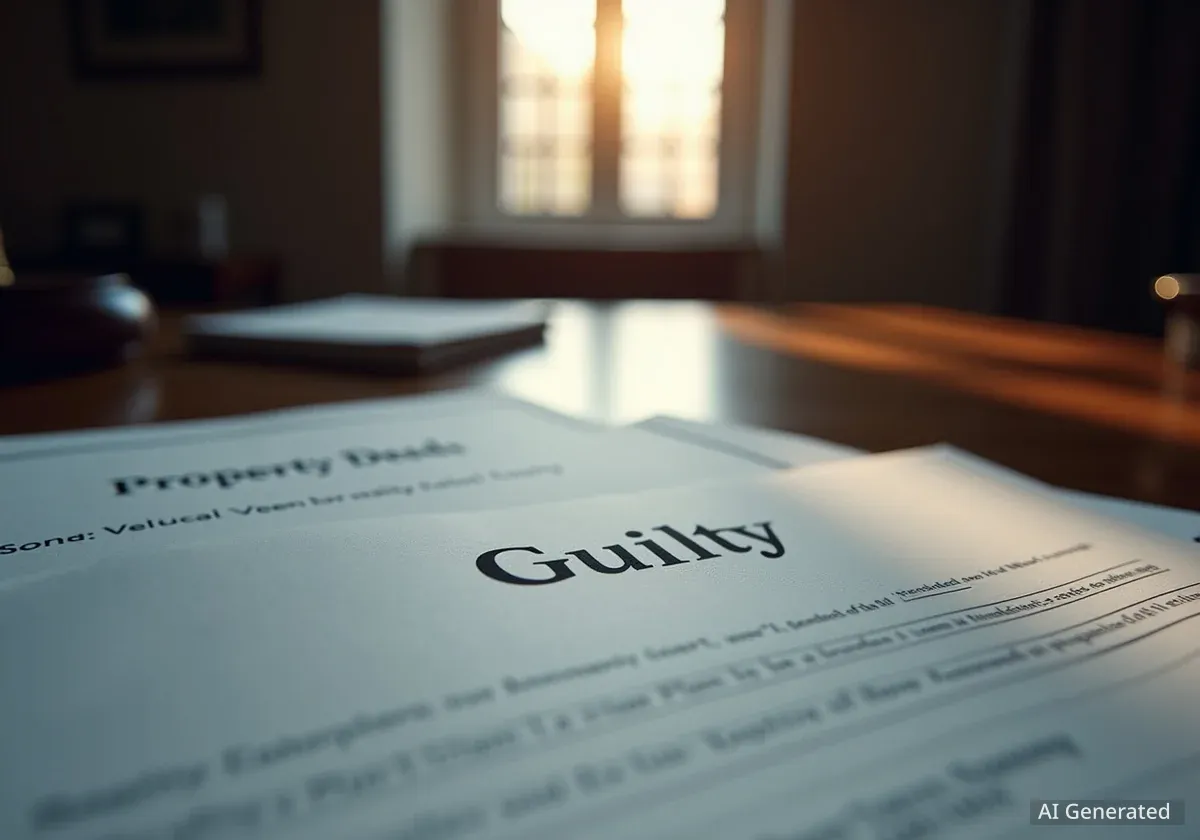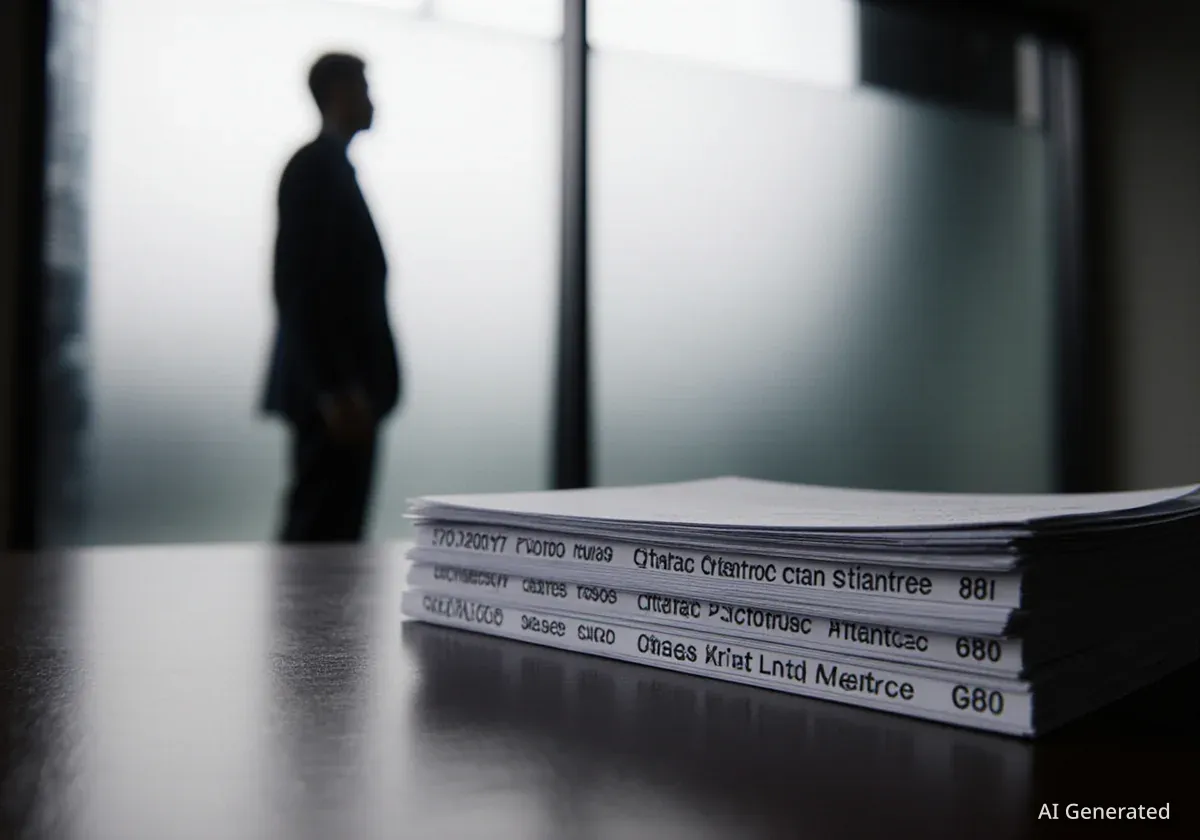A former real estate agent in Rockland County has pleaded guilty to stealing a homeowner's property through a deed forgery scheme. The case marks the first criminal conviction under New York's recently strengthened Home Equity Theft Protection Act (HETPA), according to Attorney General Letitia James' office.
Key Takeaways
- Former real estate agent Oscar Dais pleaded guilty to forgery and violating the Home Equity Theft Protection Act (HETPA).
- This is the first criminal conviction under the expanded HETPA legislation, which was updated in 2023 to better protect homeowners.
- Dais forged a homeowner's signature to transfer a property in foreclosure to a company he controlled while the owner was out of the country.
- As part of the plea, Dais will pay restitution, and the fraudulent deed will be voided, restoring ownership to the victim.
Guilty Plea in Rockland County Court
Oscar Dais, a former real estate agent, admitted his role in a deed theft scheme in Rockland County Court on Wednesday. He pleaded guilty to charges of forgery and a direct violation of the Home Equity Theft Protection Act, a state law designed to shield homeowners facing foreclosure from predatory practices.
The conviction is a significant milestone for New York's consumer protection laws. It is the first time an individual has been criminally convicted under the provisions of HETPA since the law was expanded in 2023 following lobbying efforts by Attorney General Letitia James to increase penalties for deed theft.
Understanding Deed Theft
Deed theft is a crime where someone illegally transfers the title of a property from the rightful owner to themselves or a company they control. Scammers often target vulnerable individuals, such as the elderly or those in financial distress, particularly homeowners facing foreclosure who may be confused about their legal options.
Details of the Forgery Scheme
The case centered on the property of Monique Hill, a Rockland County homeowner. According to the Attorney General's office, Hill and her husband defaulted on their mortgage, and foreclosure proceedings began in 2016. The situation created an opportunity for Dais to exploit.
In August 2021, while Hill was in the Dominican Republic, Dais orchestrated the fraudulent transfer of her home. He created a counterfeit deed for the property, using Hill's former married name, “Monique Clark,” a name she no longer used. This detail suggests a deliberate attempt to complicate the paper trail and avoid immediate detection.
Dais then forged Hill's signature on the document. To finalize the illegal transfer, he had the forged deed notarized, giving it a false appearance of legitimacy. The document was subsequently filed with the Rockland County Clerk's Office, officially transferring ownership of the home to a company under Dais's control, all without Hill's knowledge or consent.
Timeline of Events
- 2016: Foreclosure proceedings begin on Monique Hill's home.
- August 2021: Oscar Dais forges Hill's signature on a deed while she is abroad.
- October 2021: Hill discovers the fraudulent deed and reports it to the Attorney General's Office.
- 2023: The Home Equity Theft Protection Act (HETPA) is expanded.
- September 2025: Dais pleads guilty to forgery and violating HETPA.
The First Conviction Under Expanded HETPA
This case serves as the first major test of the strengthened Home Equity Theft Protection Act. The law was specifically designed to prevent the type of predatory behavior demonstrated by Dais. It provides enhanced safeguards for homeowners in default or foreclosure by regulating transactions involving the sale of their homes.
Attorney General Letitia James, who championed the law's expansion, emphasized the importance of the conviction. She stated that criminals often prey on homeowners during their most vulnerable moments, such as a foreclosure crisis.
"Oscar Dais took advantage of a homeowner who was dealing with a foreclosure and stole her property without her knowledge. No New Yorker should have to fear that the home they own will be stolen from them. I will continue to use every tool at my disposal to fight deed theft throughout our state and bring scammers like Oscar Dais to justice."
The successful prosecution sends a clear message that the state is now better equipped to pursue criminal charges, not just civil penalties, against those who engage in deed theft. This sets a legal precedent that may deter similar fraudulent activities in the future.
Restoring Ownership and Seeking Justice
The consequences of Dais's guilty plea extend beyond potential jail time. A key component of the agreement is that he must pay restitution to Monique Hill for the damages caused by the scheme. Furthermore, the court will void the fraudulent deed that transferred her property.
This legal action will officially restore Hill's ownership share of the home, undoing the crime committed against her. Hill had previously filed a separate civil lawsuit against Dais, which is still pending. The criminal conviction will likely strengthen her position in that case.
The Attorney General's office has been increasingly focused on deed theft across New York. This case follows a separate indictment of six individuals in a $2 million Westchester County home deed theft scheme, indicating a broader crackdown on property fraud in the region.
Warning to Homeowners and Resources
Officials are using this case to remind New York homeowners to be vigilant, especially if they are facing financial hardship. Scammers often promise quick financial solutions or assistance with mortgage problems, only to trick owners into signing away their property rights.
The Office of the Attorney General is urging anyone who believes they may have been a victim of deed theft to come forward. Affected individuals are encouraged to contact the office's hotline for assistance.
New Yorkers can report potential deed theft by calling 1(800) 771-7755 or by filing a confidential complaint online through the Attorney General's official website. Prompt reporting is crucial for investigators to act quickly and potentially recover stolen property.





